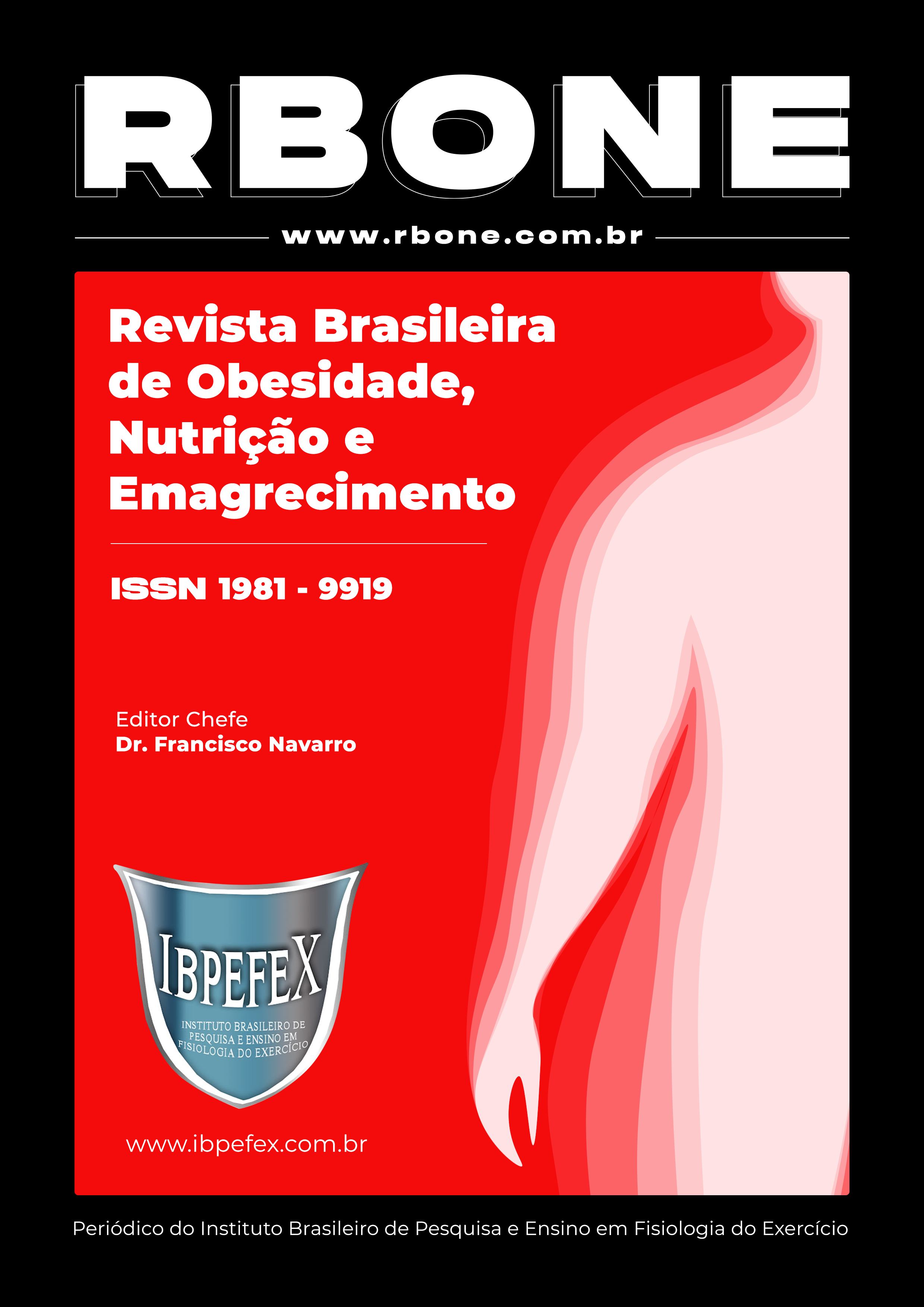Perception of feelings, blood glucose measurement and social distancing conditions in adults with type 1 diabetes mellitus during the COVID-19 pandemic in Brazil
Abstract
Introduction: The recommended social distancing measures to prevent the spread of Covid-19 caused high mental suffering, mainly for those affected by diabetes mellitus due to multiple metabolic, inflammatory and vascular changes. Objective: This work aims to test the association between the perception of feelings, the measurement of blood glucose and the conditions of social distancing due to the Covid-19 pandemic in adults with type 1 diabetes in Brazil. Materials and methods: The research was approved by the Ethics Committee and Research with Human Beings, carried out through an online form, it is a cross-sectional, descriptive and analytical study, carried out during the month of July 2020. Results: 472 adults with DM1 participated, 50.4% said that social distancing was causing stress in their home environment. For statistical analysis, the Statistical Package for Social Sciences software, version 21, was used, a relationship was found between stress, hyperglycemia and less willingness to remain in social isolation; normoglycemia feeling of joy and greater willingness to remain in social isolation. Conclusion: Given this, it is observed that social distancing caused glycemic and mood changes in these individuals. Therefore, the inclusion of care in the health of this population should be considered, through different interventions with the multidisciplinary team.
References
-Alessi, J.; Oliveira, G.B.; Franco, D.W. Mental health in the era of COVID-19: prevalence of psychiatric disorders in a cohort of patients with type 1 and type 2 diabetes during the social distancing. Diabetol Metab Syndr. Vol. 12. 2020. p. 76.
-Carvalho, M.D.B. Reflexões sobre o diabetes tipo 1 e sua relação com o emocional. Psicologia Reflexão e Crítica. Vol. 18. 2005.
-Comitê Gestor da Internet no Brasil. Pesquisa TIC Domicílios (2019). https://cetic.br/media/analises/tic_domicilios_2019_coletiva_imprensa.pdf.
-Cui, J.l. Origin and evolution of pathogenic coronaviruses. Nat Rev Microbiol. Vol. 17. 2019. p181-192. https://doi.org/10.1038/s41579-018-0118-9
-Cunha, R.C.S. Psicossomática: uma abordagem do diabetes. Revista Científica Multidisciplinar Núcleo do Conhecimento. Vol. 8. Num. 1. 2021. p 108 - 116.
-Damásio, A.A. Estranha Ordem Das Coisas: As Origens Biológicas dos Sentimentos e da Cultura. Companhia das letras. 2018. p. 24-25.
-Duarte, M.Q. COVID-19 e os impactos na saúde mental: uma amostra do Rio Grande do Sul, Brasil. Ciênc. saúde coletiva. Vol. 25. Num. 9. 2020.
-Fisher, L. The early impact of the COVID-19 pandemic on adults with type 1 or type 2 diabetes: A national cohort study. J Diabetes Complications. Vol. 34. 2020.
-Fogaça, P.C.; Arossi, G.A. Hirdes, A. Impact of social isolation caused by the COVID-19 pandemic on the mental health of the general population: An integrative review. Research, Society and Development. Vol. 10. Num. 4. 2021. p. e52010414411.
-Frossard, A.G.D.S.; Aguiar, A.B. Covid-19 and the new modes of interaction in palliative care. SciELO Preprints, 2020. DOI: 10.1590/SciELOPreprints.1073.
-Gonzalez, J.S. Depressão e não adesão ao tratamento do diabetes: uma meta-análise. Cuidados Diabéticos. Vol. 3. 2008. p. 2398-403
-Henna, E.A.D. Prevalência de transtorno mental comum e transtorno de personalidade em pacientes com diabetes mellitus tipo 1 atendidos no ambulatório do Conjunto Hospitalar de Sorocaba-SP. Revista da Faculdade de Ciências Médicas de Sorocaba. Vol. 20. Num. Supl. 2018.
-Joensen, L.E. Diabetes and COVID-19: psychosocial consequences of the COVID-19 pandemic in people with diabetes in Denmark-what characterizes people with high levels of COVID-19-related worries?. Diabetic Association. Vol. 37. 2020.
-Malta, D.C. Uso dos serviços de saúde e adesão ao distanciamento social por adultos com doenças crônicas na pandemia de COVID-19. Ciência & Saúde Coletiva. Vol. 26. Num 07. 2021.
-Malta, D.C.; Gomes, C.S.; Barros, M.B.A. Doenças crônicas não transmissíveis e mudanças nos estilos de vida durante a pandemia de COVID-19 no Brasil. Rev. bras. epidemiol. Vol. 24. 2021.
-Ministério da Saúde. Política Nacional de Atenção Integral à Saúde da Mulher: Princípios e Diretrizes. Editora Ministério da Saúde: Brasília. 2011. Brasil. p. 44.
-Pietrukowicz, M.C.LC. Apoio social e religião: uma forma de enfrentamento dos problemas de saúde. Arquivos Brasileiros de Psicologia. Rio de Janeiro. Vol. 67. Num. 1. 2021. p. 84-98.
-Ruissen, M.M. Increased stress, weight gain and less exercise in relation to glycemic control in people with type 1 and type 2 diabetes during the COVID-19 pandemic. BMJ Open Diabetes Research and Care. Vol. 9. 2021. p. e002035
-Schuchmann, A.Z. Isolamento social vertical X Isolamento social horizontal: os dilemas sanitários e sociais no enfrentamento da pandemia de Covid-19. Brazilian Journal of Health. Curitiba. Vol. 3. Num. 2. 2020. p. 3556-3576.
-Snoek, F.J.; Bremmer, M.A.; Hermanns, N. Constructs of depression and distress in diabetes: time for an appraisal. The lancet. Diabetes & endocrinology. Vol. 3. 2015. p. 450-460.
-Torres-Tamayo, M. Infección por coronavirus en pacientes con diabetes. Arch Cardiol Mex. Vol. 90. 2020. p. 67-76.
-WHO. World Health Organization. Critical preparedness, readiness and response actions for COVID-19. 2020.
Copyright (c) 2024 Maria de Nazareth de Lima Carneiro, Daniela Lopes Gomes, Rayanne Vieira da Silva, Rachel Coelho Ripardo, Alana dos Anjos Moreira

This work is licensed under a Creative Commons Attribution-NonCommercial 4.0 International License.
Authors who publish in this journal agree to the following terms:
- Authors retain the copyright and grant the journal the right of first publication, with work simultaneously licensed under the Creative Commons Attribution License BY-NC which allows the sharing of the work with acknowledgment of the authorship of the work and initial publication in this journal.
- Authors are authorized to enter into additional contracts separately for non-exclusive distribution of the version of the work published in this journal (eg, publishing in institutional repository or book chapter), with acknowledgment of authorship and initial publication in this journal.
- Authors are allowed and encouraged to post and distribute their work online (eg, in institutional repositories or on their personal page) at any point before or during the editorial process, as this can bring about productive change as well as increase impact and impact. citation of published work (See The Effect of Free Access).






